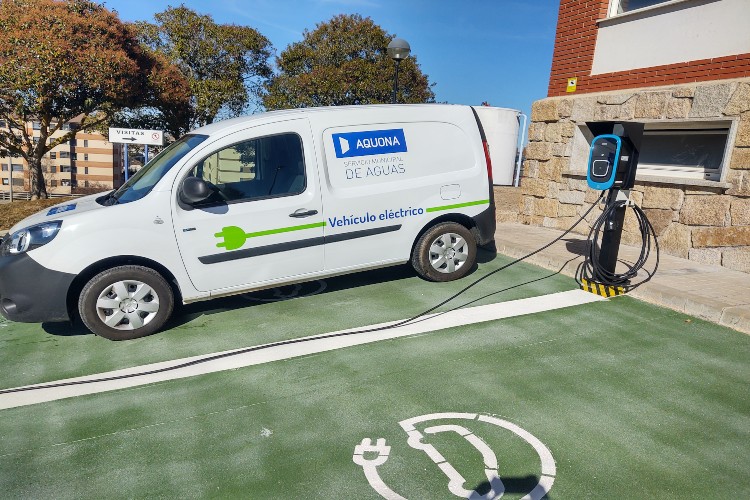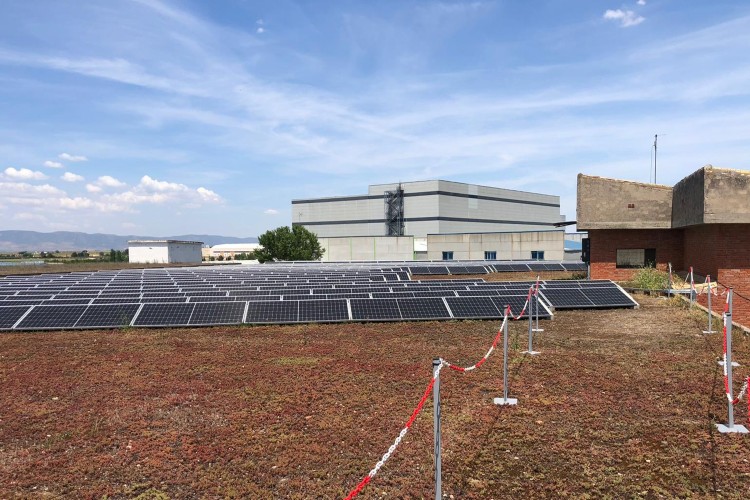Aquona bets on transformation to save the planet
Aquona offers innovative solutions for the sustainable management of resources and promotes environmental health in Castilla-La Mancha and Castilla y León
Planet Earth is our only home. We don't have a spare. There is no plan B. Humanity has an obligation to take care of it and safeguard its finite resources. Therefore, it is necessary to adopt transformative changes that allow us to envision a more sustainable future.
World Environment Day, which is celebrated on June 5, has the theme "One Earth" this year and calls for profound changes in policies and in our decisions to live in harmony with nature, promoting a more sustainable lifestyle. clean, ecological and sustainable.
Climate change, caused by human activity, is aggravating the loss of biodiversity and this loss, in turn, is accelerating global warming, since many of the affected ecosystems, such as oceans and forests, are decisive in absorbing greenhouse gas emissions. carbon.
Water, a basic resource for the existence of life, suffers the consequences of all this. Droughts and floods follow one another. The quality of water decreases and, above all, its scarcity is further aggravated. In 2030, it is estimated that 47% of the population will live in areas with water stress, with Spain being one of the most affected areas. In addition, the growth of the world population requires more resources and food, so more and more water will be needed for agriculture, industry and cities. Specifically, it is estimated that the demand for water will increase between 20% and 30% between now and 2050.
Aquona, a reference in the preservation of the environment
Aquona, a company with a history of more than half a century in the territory, offers innovative solutions in the sustainable management of water, natural resources and environmental health, in line with the roadmap of the 2030 Agenda and the Goals of Sustainable Development (SDG) of the United Nations. In Castilla-La Mancha and Castilla y León, the company provides water service to more than 1 million people daily, in more than 130 municipalities.
In the fight against climate change and the preservation of the environment, Aquona relies on innovation and digitization, as well as partnerships, to accelerate the ecological transition and thus contribute to better protecting the planet and improving the quality of life of people.

The company is committed to mitigating climate change through the purchase of green energy, the generation of renewable energies and the promotion of sustainable mobility, among other initiatives. "In the last two years we have avoided the emission of 14,219 tons of CO2 thanks to the purchase of green energy, as well as our commitment to energy efficiency and energy production in the facilities we manage", highlights Laura de Vega, director of Sustainable Development and Transformation of Aquona. Precisely, in terms of green energy, the company has produced 7.2 GWh of renewable energy in the 2020-2021 period, mainly through "the use of biogas as fuel in cogeneration engines, which allow us to generate electricity and thermal, and the installation of solar panels in some of the treatment plants that we manage, as is the case of the Ciudad Real, Daimiel and Palencia water treatment plants and the sewage treatment plant in the capital of Palencia”, adds Laura de Vega. In terms of sustainable mobility, the company already has 100 ECO vehicles in its fleet for the water, sanitation and treatment services that it manages in both communities. on the planet and improve people's quality of life.
Circular economy and resilience
Caring for the planet also means giving new life to resources, moving towards the paradigm of the circular economy. Aquona has launched a model for transforming traditional sewage treatment plants into biofactories. These are true resource 'factories' that regenerate water for new uses (irrigation, agriculture and industry), valorize all waste (for example, biogas generation from the sludge resulting from treatment), and, lastly, , produce energy for their own supply, generating a positive impact on their environment.
In Castilla y León, the benchmark in this regard is the Palencia biofactory. This plant has already reached a rate of 54% energy self-sufficiency, in addition to reusing the purified water for the irrigation of gardens and the sludge and grease generated in the purification process. “We have managed to give them a second life by using the sludge as an agricultural fertilizer, while we use the fats in the plant itself as a co-substrate to increase energy production”, underlines the director of Sustainable Development and Transformation of Aquona. In global figures, Aquona is already capable of recovering 95.2% of the waste generated in the treatment plants it manages.

In Castilla La Mancha, work is being done to transform the Ciudad Real treatment plant into a biofactory, but the most important progress has been made in Daimiel, in terms of resilience to climate change. In this town, there are natural ecosystems of great value such as the Las Tablas de Daimiel Natural Park or the Navaseca Lagoon, which are being threatened by the effects of climate change. Thanks to the public-private collaboration that is maintained with the City Council, a series of improvements have been made in the wastewater treatment plant that have resulted in an increase in the quality of the water in the Laguna de Navaseca, avoiding discharges into the same in case of episodes of heavy rains, among many other advances.
17 achievements for 17 SDGs
There are very diverse examples of how the water sector can contribute to the preservation of the environment. Aquona demonstrates this in a new exercise of commitment to transparency, transmitting to society how it has advanced in meeting the 17 United Nations Sustainable Development Goals. On World Environment Day, the company's 2020-2021 Sustainable Development Report comes to light, a document that can be consulted on this same website and that includes some of the achievements mentioned above in terms of fighting against climate change and promotion of the circular economy, but also those related to environmental awareness or alliances with municipalities and third-sector entities to curb the effects of the economic crisis without leaving anyone behind. "The pandemic has not stopped our contribution to the 2030 Agenda, which is precisely our roadmap to promote a supportive and sustainable recovery in all the municipalities in which we are present," concludes de Vega.